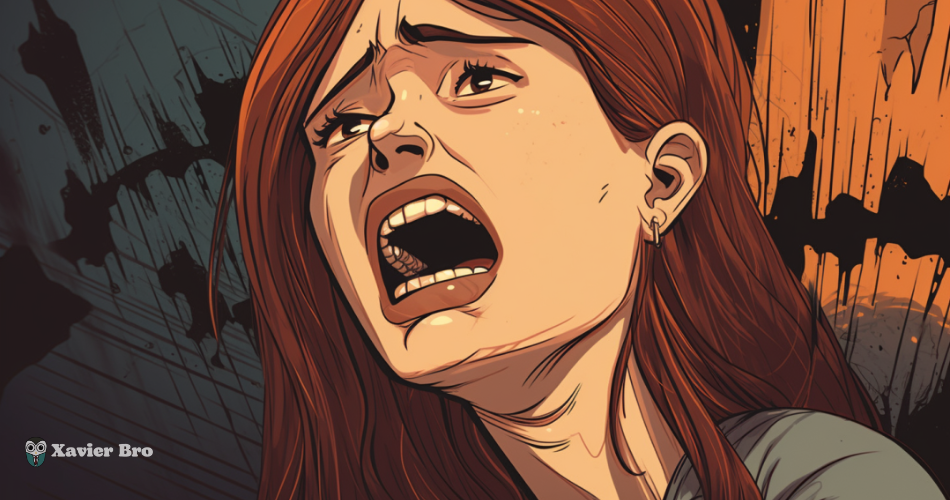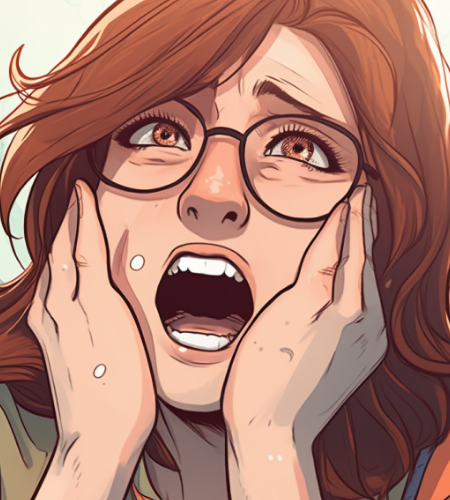Exploring multiple factors is essential to understand why our teeth may lose bone support. Dental bone loss happens when the bone around our teeth or their roots gets damaged. Bones in our bodies are alive and sensitive, making them vulnerable to harmful conditions. This article will discuss the leading causes of tooth bone loss.
Causes Behind Tooth Bone Loss
Let’s dive into various causes behind tooth bone loss!
1- Tooth Bone Loss Due to Tooth Misalignment
When our teeth are not properly aligned, it can lead to bone loss because they can no longer provide direct stimulation. One common cause of misalignment is when there is no opposing tooth structure, meaning the teeth don’t have a natural match to bite against.
Additionally, issues like TMJ (temporomandibular joint disorder), wisdom teeth eruption, lack of dental treatment, and even normal wear-and-tear can contribute to misalignment.
These factors can result in difficulties in performing natural activities like chewing and biting. Over time, when the bone doesn’t receive direct stimulation, it may lose strength. This occurs because the bone requires regular and steady pressure from the teeth to remain sturdy and in good condition.
2- Link Between Gum Disease and Bone Loss
When our gums get sick with serious gum diseases like gingivitis or periodontitis, it can hurt the soft tissue and damage the bone that holds our teeth. Gum disease often happens because of dental plaque, which can harm teeth.
Plaque is like a sticky film that we can prevent by brushing and flossing every day. However, if we neglect our teeth, plaque can harden into something rough called tartar. Tartar can form both above and below the gum line, irritating the gums and causing them to become red, swollen, and prone to bleeding.
If we don’t fix gingivitis, it can worsen gum diseases like periodontitis. In periodontitis, the gum tissue that supports our teeth and the bone around them worsens. As the bone slowly disappears, our teeth can become loose and even fall out.
3- Dental Prosthetic and Bone Deterioration
When dentures become loose and sit on top of the gums, they don’t give enough direct stimulation to the jawbone underneath. Instead, they depend on the current bone structure for stability. Over time, this lack of stimulation can make the bone shrink and weaken. It becomes difficult for people to eat and speak correctly, so we call them loose dentures.
If the bone loss is severe and left untreated, even stronger adhesives may not keep the dentures secure, and new dentures might be needed. Dentures supported by a bridge and using nearby teeth can provide better stimulation to preserve the bone.
However, the area where there are missing teeth and the bridge fills the gap doesn’t receive direct stimulation and can lead to bone loss. In some cases, bridgework may require the neighboring teeth to be filed down to attach the dental appliance.
4- Impact Of Trauma on Dental Bone
During sports, accidents can happen that result in injuries to our teeth. These injuries can include jaw fractures, teeth being knocked out completely, or even cracked and chipped teeth. These types of accidents can affect the health of our jawbone because a damaged tooth can’t send the proper force to keep the bone healthy. That’s why it’s super important to be careful and wear protective gear while playing sports.
5- Consequences Of Tooth Extraction
When a dentist takes out a tooth, it can affect our mouth. One of these effects is called tooth-bone loss. It means that the bone around the area where the tooth was removed starts to shrink and weaken. Tooth bone loss can cause a few problems.
First, it can change the way our face looks. The bone helps support our facial muscles and tissues, so our face might look sunken or older when it gets smaller. Another issue is that the nearby teeth can move and become crooked. Without the tooth that was taken out, the other teeth can start to shift or lean into the space. It can make it hard to chew food properly or speak clearly.

6- Tumors and Cysts: Dental Bone Loss Factors
Sometimes, growths called tumors or cysts in our mouth and jawbone can affect our dental bone. These growths are abnormal and can cause dental bone loss. Tumors and cysts in the oral cavity reduce the space in the mouth and put pressure on the bone, which makes it weak and causes it to deteriorate, eventually leading to loosening or even falling out of teeth.
7- The Role Of Tooth Infection in Bone Deterioration
Tooth infections can be a big problem because they can cause bone deterioration and tooth bone loss. These infections happen when bacteria get inside our teeth and make them sick. When the infection spreads, it can weaken the bone around the tooth and break it down.
This can happen if we have a deep hole or a cracked tooth that lets the bacteria go inside. As the infection gets worse, it can hurt the bone that supports the tooth. It can make the tooth feel wiggly or even fall out. It’s called tooth-bone loss.
Treatment
Getting the proper treatment is crucial when we have tooth bone loss. The dentist will examine our teeth, see the extent of bone loss by x-ray or any other means, and suggest appropriate treatment. One standard treatment is called bone grafting. It involves adding new bone material to the affected area to help rebuild the lost bone. This procedure encourages the growth of new, healthy bones.
Sometimes, dentists may suggest dental implants as a solution. These implants act as artificial tooth roots and are placed in the jawbone. They offer a strong base for replacement teeth and stimulate the bone, which helps to prevent additional bone loss.
Oral hygiene and care after treatment are essential for teeth health. Regular flossing and brushing our teeth have proven techniques to avoid any disease or complication which will lead to tooth bone loss.
The Bottom Line
Tooth bone loss can result from tooth extraction, gum disease, infection in the mouth, tumors, and cysts. Teeth also play a crucial role in our chewing, speaking, and smiling appearance. So proper cleaning of the oral cavity, flossing of teeth, and regular dental check-ups can save you from tooth bone loss.
But if you notice any pain, swelling, or infection, visit your dentist. Dentists can help you by using dental implants and bone grafting, which would improve your supporting structure and overall bone health. So let’s brush our teeth, go to the dentist, and keep our teeth healthy and strong!
FAQs about What Causes Tooth Bone Loss
You can slow down bone loss by increasing calcium and vitamin D intake and avoiding harmful substances like smoking, excess sugar intake, and excess sodium by taking good care of your mental health and visiting your dentist regularly.
Loose or shifting teeth, receding gums, bite or jaw alignment changes, increased tooth sensitivity, gum inflammation, bad breath, or persistent bad taste are signs of tooth bone loss.
I hope so you enjoy our article, do check out more of our amazing articles.
